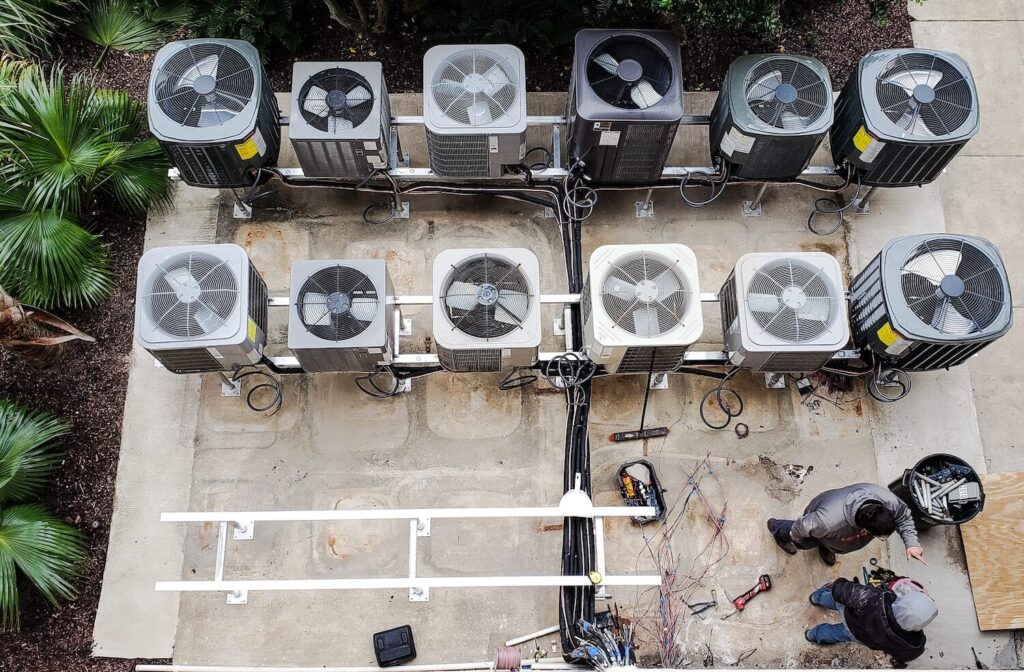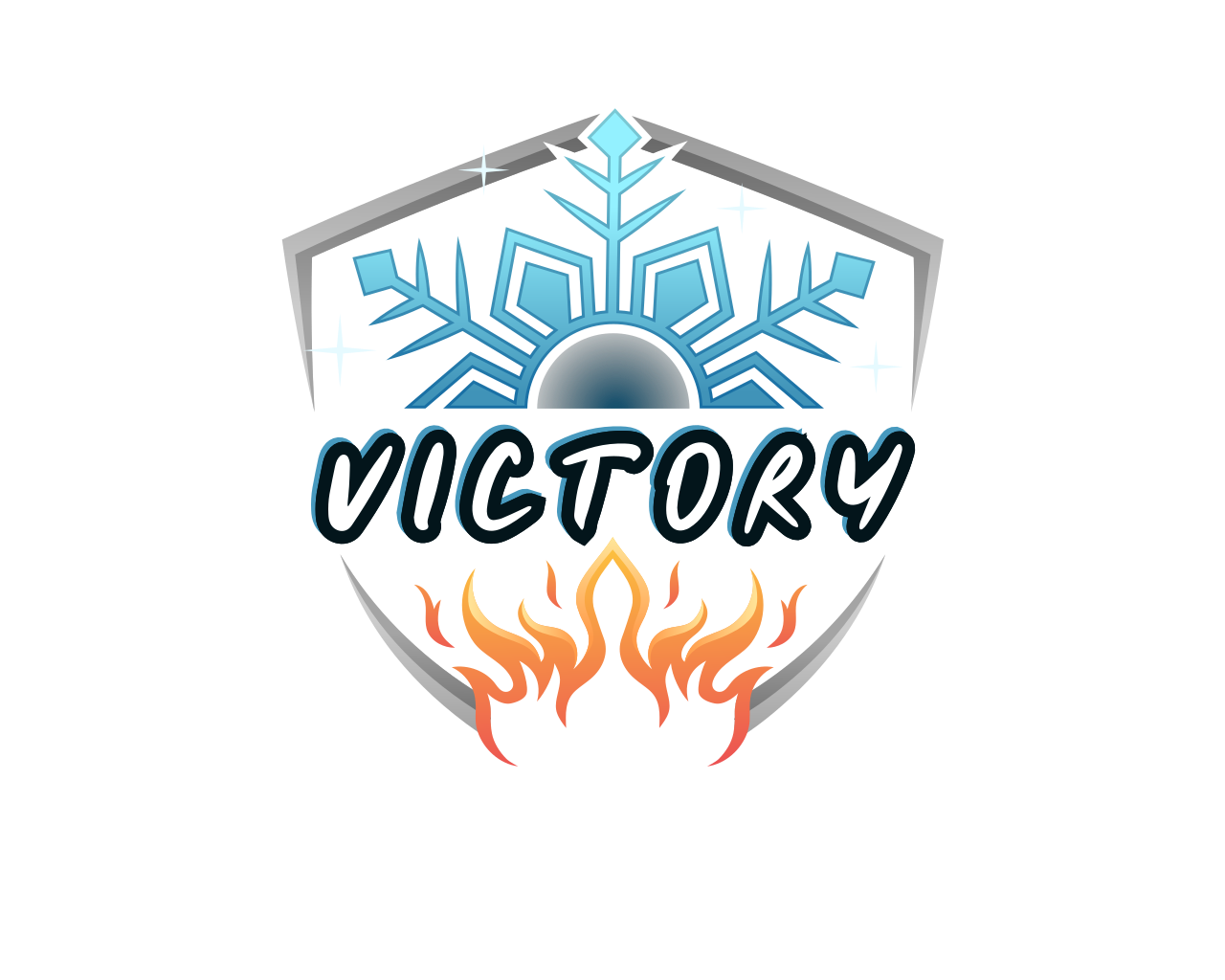
Whether it’s a summer scorcher or a winter freeze, your HVAC system is one of the hardest-working systems in your home. Responsible for heating, cooling, and circulating clean air, it plays a critical role in ensuring indoor comfort and health. However, like any complex mechanical system, it will inevitably experience issues over time.
Unfortunately, many homeowners miss the early warning signs that something’s wrong—leading to larger, more expensive problems later on. That’s why recognizing the symptoms of HVAC trouble before a total breakdown occurs is essential to keeping your home safe, comfortable, and efficient.
This detailed guide will explore the most common (and often overlooked) signs that your HVAC system needs repair, what causes them, the consequences of ignoring them, and what you should do next.
1. Loud or Strange Noises Coming from the System
Most HVAC systems are designed to run quietly. You’ll hear the gentle hum of the motor and the soft whoosh of air moving through the ducts. However, when the system starts making loud or strange noises, something’s not right.
Types of Problematic Sounds:
- Banging or Clanking: Often indicates a loose or broken internal component such as a connecting rod or fan blade.
- Squealing or Screeching: Usually signals a worn or slipping belt, or problems with the motor bearings.
- Buzzing or Clicking: Could mean electrical issues, like a failing capacitor or contactor.
- Hissing: Might point to refrigerant leaks or a problem in the ductwork.
Why You Shouldn’t Ignore It:
Unusual sounds are your HVAC system’s way of signaling distress. Continuing to operate it can lead to worsening damage, potentially causing complete system failure or increasing your energy costs significantly.
2. Inconsistent Temperatures Throughout Your Home
If you notice certain rooms are significantly warmer or colder than others—even when your thermostat is set evenly—your HVAC system may be struggling to distribute air properly.
Possible Reasons:
- Dirty or damaged ductwork reducing airflow.
- Faulty dampers or zone controls.
- An aging or improperly sized HVAC system.
- Malfunctioning blower fan.
Long-Term Effects:
Ignoring this issue may cause parts of your home to become uninhabitable during temperature extremes and force your system to work harder, shortening its lifespan and increasing utility bills.
3. Weak or No Airflow
Another obvious—but frequently ignored—symptom of trouble is weak airflow. When air barely comes out of the unit’s vents (or doesn’t come out at all), it means your system can’t keep up with demand.
Common Culprits:
- Clogged air filters.
- Failing blower motor.
- Closed or obstructed vents.
- Leaky ducts that let air escape before reaching the rooms.
Consequences:
Without proper airflow, your system will overwork itself trying to reach the desired temperature, wasting energy and wearing out components faster than normal.
4. A Sudden Spike in Utility Bills
Energy bills that rise sharply from one month to the next—without an obvious reason—are a red flag. It’s a classic sign that your HVAC system is losing efficiency.
What Could Be Going Wrong:
- Blocked filters restricting airflow.
- Refrigerant leaks reducing cooling power.
- Poor maintenance leading to dirty coils or clogged drainage.
- Failing parts causing the system to work harder.
What It Means for You:
You’re spending more money for less performance. Over time, an inefficient system drains your wallet and may need total replacement sooner than expected.
5. Short Cycling or Constant Running
“Short cycling” is when your system turns on and off in rapid succession. Conversely, a system that runs constantly without reaching the set temperature is equally concerning.
Potential Causes:
- Thermostat issues (miscalibration or placement).
- Clogged air filters.
- Low refrigerant levels.
- Oversized HVAC unit (cools too fast, turns off too soon).
- Undersized unit that can’t keep up.
Long-Term Impact:
Frequent cycling leads to wear and tear on components like the compressor and blower motor, reducing their lifespan and leading to breakdowns. It also results in uncomfortable indoor temperatures and inconsistent humidity control.
6. Strange or Foul Odors
If you smell something odd when the system is running, do not ignore it. Odors often indicate a serious problem.
Common HVAC-Related Smells:
- Musty: Mold or mildew in ducts or components.
- Burning: Electrical issues or overheating parts.
- Rotten eggs: Possible natural gas leak—call a professional immediately.
Health Risks:
Mold spores can exacerbate asthma and allergies. Gas leaks are potentially fatal. Electrical smells could precede a fire. Always act quickly when strange odors appear.
7. Excess Humidity Indoors
Your HVAC system does more than heat or cool—it also manages indoor humidity. If your house feels damp, sticky, or muggy, even when the AC is on, something isn’t functioning correctly.
Potential Problems:
- A failing evaporator coil.
- Thermostat settings not allowing for proper dehumidification.
- Inadequate system size or a broken humidistat.
Why It Matters:
High humidity can encourage mold growth, damage furniture and wood flooring, and make your home feel much warmer than it really is—forcing you to crank the AC and waste energy.
8. Ice on the Coils or Water Leaks Around the Unit
A functioning HVAC system should never produce ice or excessive water. If you spot either, it’s a sign of a serious issue.
Ice Accumulation Causes:
- Low refrigerant levels.
- Dirty evaporator coils.
- Clogged filters reducing airflow.
Water Leaks:
- A clogged or broken condensate drain line.
- Rusted drain pans.
- Frozen and thawing coils.
Unchecked water buildup can lead to property damage, ceiling stains, mold infestations, and potentially even electrical fires.
9. Frequent Repairs or Component Failures
If you’re calling your HVAC technician every few months for another issue, you’re dealing with a system that’s becoming unreliable.
Warning Signs:
- Constant part replacements.
- Inconsistent performance.
- Increasingly expensive repair costs.
When to Rethink Repairs:
A good rule of thumb: If the cost of repair exceeds 50% of the cost of a new system, it may be time to consider replacement instead.
10. Thermostat Problems
Sometimes the issue isn’t the HVAC system itself, but the thermostat. Still, the result is the same—your comfort suffers.
Signs Your Thermostat Is Failing:
- Incorrect temperature readings.
- Unresponsive controls.
- The system doesn’t turn on or off when it should.
Smart Tip:
If your home still uses a manual thermostat, consider upgrading to a programmable or smart thermostat to improve energy efficiency and gain more control over comfort levels.
11. Poor Indoor Air Quality
One of the most overlooked HVAC unit’s responsibilities is maintaining indoor air quality (IAQ). If you’re noticing increased dust, allergies, or stale air, your HVAC system may be part of the problem.
Factors That Affect IAQ:
- Dirty filters or ducts.
- Mold in the unit or vents.
- Malfunctioning air purification systems.
- Recirculating air with insufficient ventilation.
Health Effects:
Poor IAQ can lead to headaches, fatigue, respiratory problems, and worsening asthma or allergies. It’s especially critical in homes with children, elderly residents, or those with pre-existing conditions.
12. Aging System (10-15+ Years Old)
Even the best HVAC systems don’t last forever. Most systems have a lifespan of 10 to 15 years, depending on usage and maintenance.
Signs of Age-Related Decline:
- Frequent repairs.
- Diminished efficiency.
- Outdated technology (non-compatible with smart home systems).
- Unusual noise or performance issues.
Should You Repair or Replace?
If your system is over 10 years old and requires major repairs, investing in a newer, more efficient unit could save you thousands in energy and maintenance costs over time.
Why Early Repairs Are So Important
1. Cost Savings
Fixing a small problem now is always cheaper than replacing an entire system. Delayed maintenance usually results in compounding issues.
2. Energy Efficiency
An HVAC system in good repair runs more efficiently—consuming less power and keeping your energy bills low.
3. Comfort & Health
Temperature fluctuations, high humidity, and poor air quality all affect your day-to-day comfort and your family’s well-being.
4. Peace of Mind
There’s nothing worse than your heat failing on a freezing winter night or your AC dying during a heatwave. Preventative maintenance and early repairs ensure your system is ready when you need it most.
What to Do If You Suspect HVAC Unit’s Trouble
If you notice any of the signs listed above, don’t delay. Here’s what you should do:
- Change Your Air Filters – Dirty filters are often the root cause of HVAC performance issues.
- Check Your Thermostat – Ensure it’s functioning correctly and has fresh batteries.
- Schedule an HVAC Inspection – A licensed technician can assess the entire system, identify problems, and recommend solutions.
- Keep a Maintenance Log – Record all HVAC maintenance and repairs. It helps technicians and can be a selling point if you list your home.
- Ask About a Maintenance Plan – Many HVAC companies offer seasonal checkups that keep your system running optimally.
Preventative Maintenance: Your Best Defense
Think of your HVAC system like a car—you wouldn’t drive thousands of miles without getting an oil change, right? Just like a vehicle, your HVAC system needs regular tune-ups to operate safely, efficiently, and reliably. That’s where preventative maintenance comes in.
Rather than waiting for something to break, preventative maintenance focuses on catching small issues before they turn into expensive HVAC repairs or full system failures. It’s not just smart—it’s essential.
Why Preventative Maintenance Matters
- Improved Energy Efficiency: A well-maintained system uses less energy to heat and cool your home. Dirty coils, clogged filters, or worn-out parts force your unit to work harder, increasing your utility bills.
- Longer System Lifespan: Routine check-ups keep your HVAC system running smoothly for years longer than systems that are neglected.
- Fewer Breakdowns: Technicians can spot worn parts or potential issues early—helping you avoid inconvenient and costly emergency repairs.
- Better Indoor Air Quality: Maintenance includes cleaning or replacing air filters, clearing debris, and checking for mold or mildew, which means the air in your home stays fresher and healthier.
- Consistent Comfort: When every component is working correctly, your home stays at the temperature you want—without hot or cold spots, humidity issues, or inconsistent airflow.
How Often Should You Schedule Maintenance?
Experts recommend having your HVAC system professionally serviced at least once a year, ideally:
- Spring for air conditioning systems
- Fall for furnaces and heating units
Even better, enrolling in a maintenance membership plan with a trusted HVAC provider can help you stay on track with timely inspections and enjoy perks like priority service and discounted repairs.
Conclusion: Don’t Wait Until It’s Too Late
Your HVAC system is one of the most important investments in your home—responsible for keeping your family comfortable, your indoor air clean, and your energy costs under control. But when issues start to surface, even small ones can quickly snowball into major repairs or full system breakdowns.
That’s why it’s essential to catch the warning signs early—unusual noises, poor airflow, inconsistent temperatures, or rising utility bills. These aren’t just annoyances—they’re red flags that something’s not working as it should.
At Victory AC & Refrigeration, we believe in solving problems before they become emergencies. Whether you need a quick repair, a full system inspection, or a seasonal maintenance tune-up, our experienced technicians are here to help you stay comfortable year-round. We diagnose issues accurately, repair systems efficiently, and never recommend more than you need.
Don’t wait until it’s too late. If your HVAC system is showing signs of trouble, let Victory AC & Refrigeration bring you peace of mind. Contact us today to schedule professional HVAC services—and keep your comfort system running at peak performance.
